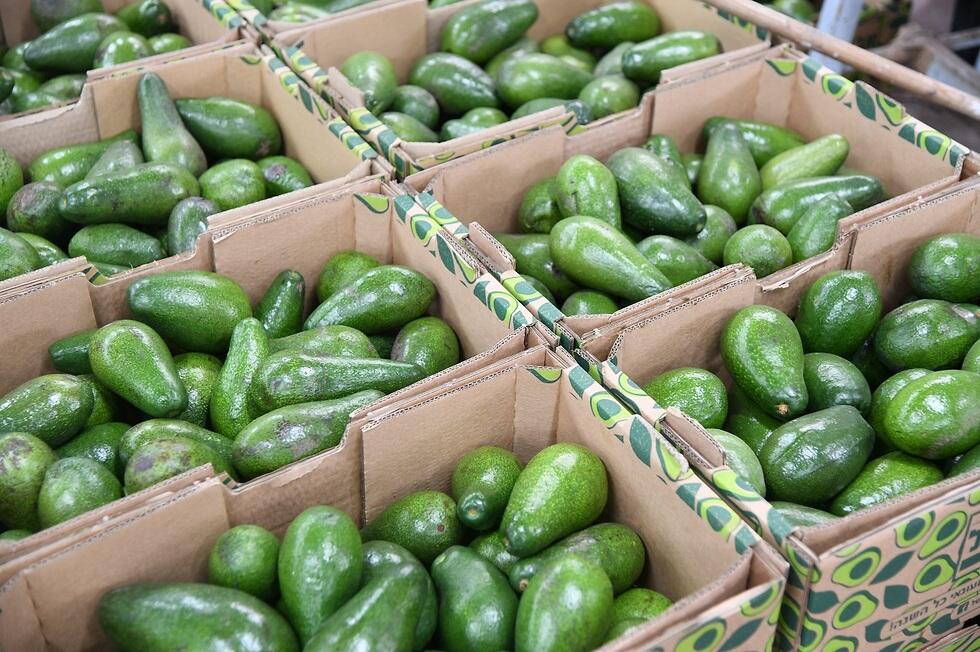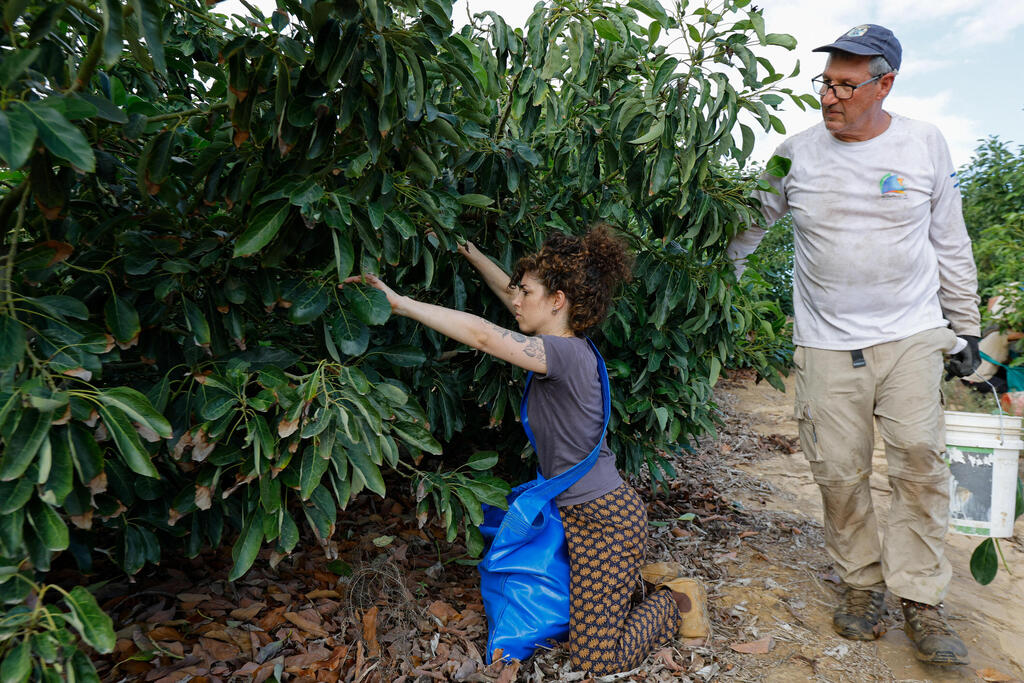Getting your Trinity Audio player ready...
Despite the war in Gaza and the difficulties in farming in certain areas, Israel's avocado yield is expected to reach 250,000 tons this season compared to about 150,000 tons in 2023, according to the Agriculture Ministry. The previous record stood at about 210,000 tons of avocados in 2022.
More stories:
Moshe Brookenthal, the head of the fruit sector at the Plants Production and Marketing Board, noted that "the sector is experiencing tremendous growth despite the difficulties that the war has imposed on Israeli agriculture, including a shortage of manpower across the country and limited access to orchards adjacent to the border fence in the north and south."
"Most of the fruit is harvested thanks to the determination of growers, as well as the hep from thousands of volunteers who understand the urgency and importance of agriculture, so there is no concern about a shortage of fruits in the markets," he said.
"The avocado sector benefits from opening new markets around the world, including the Far East. At the same time, consumption per person among Israeli consumers has increased from 8-9 kg to 12 kg of fruit per year," according to Brookenthal.
The ever-growing avocado yield in Israel is also due to the fact that avocado farmlands have increased, from about 40,000 dunams in 2004 to about 143,000 dunams, a trend expected to continue in the coming years. The significant increase in quantities has benefited the consumer, leading to a decrease in prices.
"The market is good overall; we are not the largest factor in avocado in Europe. Chile, Morocco and Spain also grow avocados. Israel accounts for about 25% to 30% of the avocado market in Europe. Prices are relatively good, 8-9 shekels per kilogram. However, the current war affected exports. For example, the Scandinavian region has canceled orders. France is also not easy due to many Muslim merchants. In other places, these are isolated phenomena," Dror Eigerman, CEO of Galil Export, which exports agricultural produce from Kibbutzim in Galilee, said.
"We having trouble not only in avocados but in exporting all types of crops. However, the damage is not drastic. We were more affected by failed exports of citrus fruits because of the Houthis. There were fruit shipments on the way and they had to return, causing us significant damage," he said.
"Our greater fear concerns the export of dates. The Ramadan month is the peak season for dates in foreign markets, with most of the demand coming from the Muslim community. Today, because of the Houthis, we are shipping fruits bypassing Africa, but only resilient fruits, which affects the quality and durability of the fruit, in terms of its shelf life," he added.




